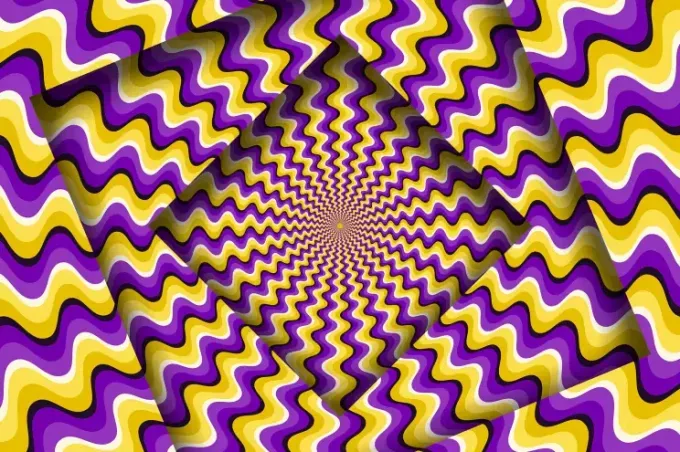It's stunning optical illusion it has the ability to make us dizzy, confused and curious. The image included in this article appears to be three-dimensional and moving, but it is actually still and flat. This is a great example of an “illusory movement”, also known as an optical illusion in motion, in which a static image gives the viewer a feeling of movement.
Check out more information about this optical illusion that seems to be moving!
see more
China: Undisputed leader in electric vehicles – How they…
Personality Test: What Animal Do You See First in…
Read more: Can you identify the tallest man in this optical illusion?
What is optical illusion?
Optical illusions involve images that our brain perceives in one way but interprets in another. Although the brain can process certain properties of an image or object, some aspects are misleading and therefore lead to error in the perception stage.
A technique that confuses shapes, position and contrasts
This illusion technique works as follows: the image provokes a misleading sensation in the brain, creating the idea of movement through the contrasting colors, shapes and position of objects. In this way, our brain interprets changes in light as movement, having the impression that the lines are moving.
However, the truth is that this image is completely static. There is also a similar trick that is used to create the idea of depth. Also, interestingly, this trick relies on the person fixing their eyes on the image to get the full effect.
Look carefully at the image

When you fix your gaze on the center of the image, the sensation of movement will diminish or cease altogether. Optical illusions are generally amusing, but they are also of great importance to scientists. Therefore, these brain puzzles can help researchers better understand the inner workings of the brain and how it responds to its environment.
Psychologist Dr. Gustav Kuhn of Goldsmiths University in London, an expert in human perception, says these illusion images are crucial to understanding the human brain.
Experts explain that we often take the perception for granted and don't think about the hard work of keeping up with everyday tasks, such as just staring at a mug in front of us.
And who doesn't see any movement?
There are people who don't see the movement, this happens if you are not using a big enough screen. However, for the full effect, try viewing the image from the corner of your eye or from a larger cell phone screen. Furthermore, the effect can also change depending on how far you are from the image or the real shapes.


